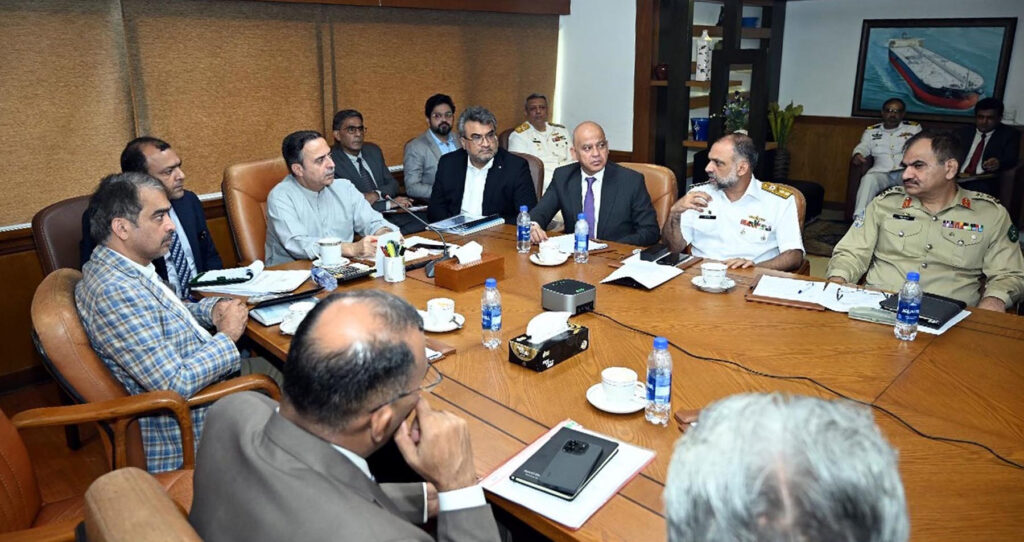PAKISTAN
By Najeeb Naich
Federal Minister for Maritime Affairs, Muhammad Junaid Anwar Chaudhry, on Monday chaired a high-level progress review meeting to accelerate land utilization reforms at Port Qasim Authority (PQA) and Karachi Port Trust (KPT)—two of Pakistan’s most critical maritime gateways.
The meeting focused on tackling chronic land encroachment and underutilization issues, bringing together senior officials to evaluate current land management practices and propose actionable strategies for unlocking the full economic potential of port land.
Minister Chaudhry emphasized that efficient land use at maritime ports is essential for Pakistan’s sustainable development. “Valuable port land must not remain idle or encroached. It is an economic asset that needs to be secured, planned, and developed to attract investment and boost national productivity,” he stated.
To address ongoing challenges, the Minister proposed the creation of a joint anti-encroachment force by PQA and KPT, empowered to protect port properties from illegal occupation. He stressed the importance of this force working in close coordination with local law enforcement to ensure effective and consistent enforcement of land protection laws.
The Minister also called for the digitization and transparency of land records to support data-driven planning and private sector engagement. “Strategic land utilization begins with visibility and accountability. Digital systems are vital to modernizing port land management and ensuring optimal outcomes,” he added.
In line with this vision, the Port Qasim Authority briefed the Minister on its upcoming comprehensive land masterplan, which includes the regularization and repurposing of unused, reclaimed, and leftover land pockets. These areas will be earmarked for high-value commercial, industrial, and infrastructure projects, contributing directly to national economic goals.
A major advancement highlighted was PQA’s development of a digital land automation system, fully integrated with its enterprise resource planning (ERP) platform. The system is designed to introduce real-time tracking, transparent record-keeping, and streamlined land management processes.
The Karachi Port Trust also presented its efforts to reclaim and utilize port land effectively. KPT officials reported active collaboration with the Survey of Pakistan on a detailed land demarcation survey, which will provide accurate mapping of port boundaries. This will enable both better land-use planning and stronger legal action against encroachments.
Minister Chaudhry applauded the reform efforts but pressed for urgency in implementation. “Plans must translate into on-ground results,” he said, announcing that monthly review meetings will be held to monitor progress, remove bureaucratic delays, and ensure inter-agency cooperation.
He concluded by reaffirming the Ministry’s commitment to turning Pakistan’s port land into an engine of economic transformation. “The future of our maritime sector depends on how effectively we utilize our land resources. Strategic planning, strict enforcement, and digital transparency will be the cornerstone of our approach.”
The meeting ended with both PQA and KPT leadership affirming their dedication to building a secure, efficiently managed, and investment-ready port infrastructure.

